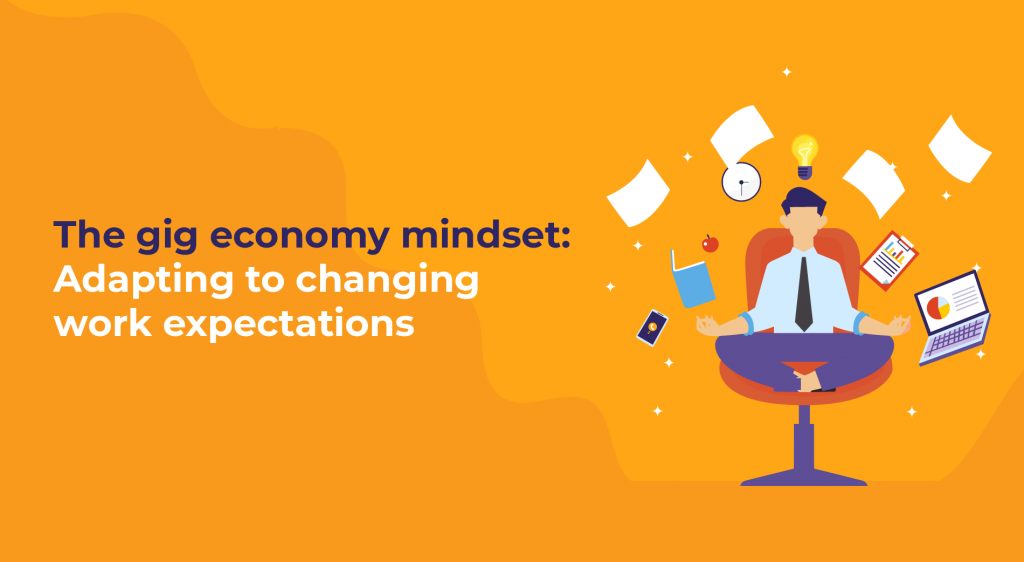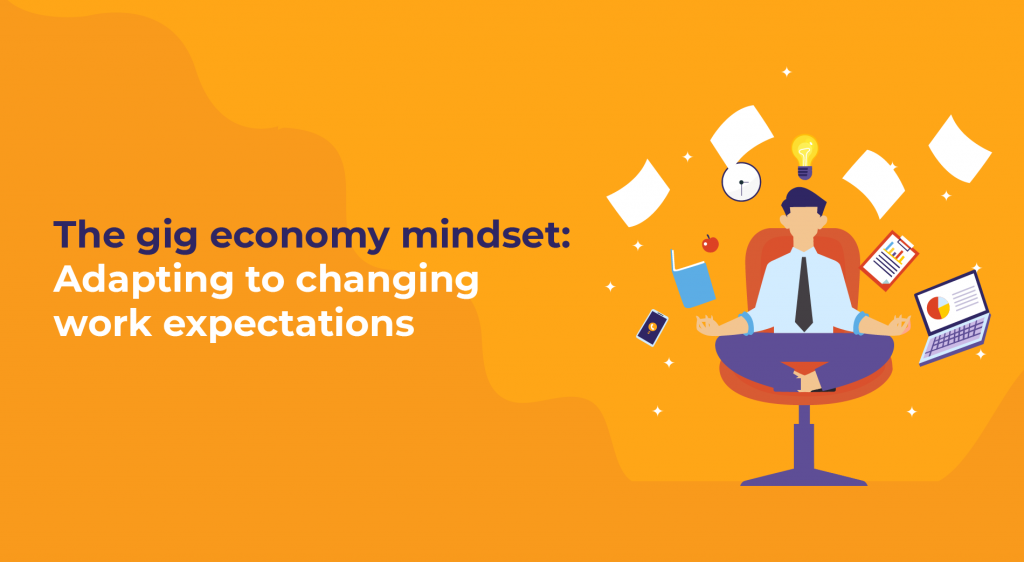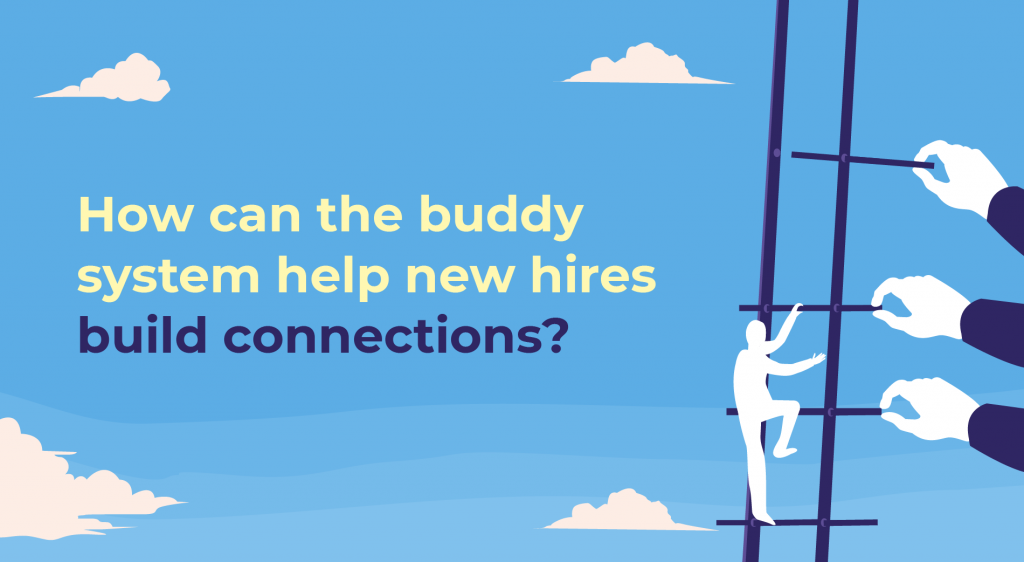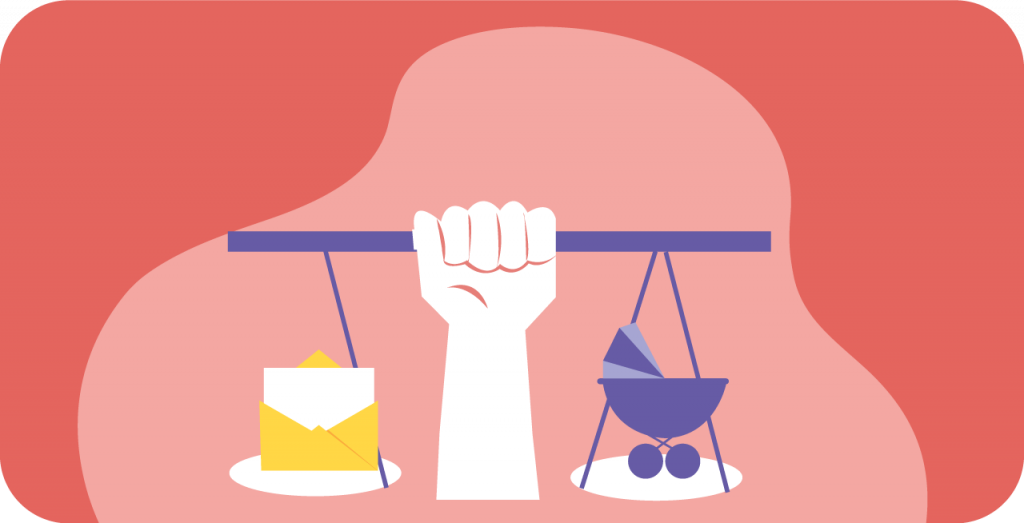
Embracing the Gig Economy Mindset: Adapting to Changing Work Expectations

Gig Mindset is a new word in the work dictionary. Its crux is autonomy, which encourages employees to start owning their working styles and principles and promotes a leadership culture through a leadership development strategy.
While work landscapes are constantly evolving post-pandemic, the gig economy mindset is already bringing big changes to work-life balance and the overall workplace environment. This change is healthy in the eyes of millennials, for it does not blur their work-life balance boundaries.
As the traditional 9-5 model gives way to more flexible and dynamic work arrangements, workers must adapt to these changing work expectations. Embracing the gig economy mindset entails a shift in perspective that acknowledges the opportunities and challenges this new way of working presents.
Research states that the number of gig workers in India is expected to surge, with projections indicating that it could reach approximately 23.5 million by 2030.
Why Is The Gig Economy Mindset The Next New Normal?
- The future of work trends, especially in India, is booming, and the gig economy approach is the kingmaker as many more companies are opening their hiring strategies to include freelancers and contract-based workers in organizations.
- This allows them to choose a work style that works best for them, keeping their productivity awake and promoting flexibility and trust.
- Additionally, studies state that the IT sector, in particular, has seen a substantial increase in gig employment, with its share nearly doubling from 22% in March 2023 to 46% in March 2024.
- This trend is also prominent in advertising and marketing, where gig jobs have grown from 5% to 18% over the past year.
The new normal has become so common that it is used with every new work trend. In the Gig economy mindset, expectations are constantly changing, and the focal point here is that the employee takes ownership and accountability for their work.
How Can Gig Economy Mindset Contribute to The Business?
The gig economy offers numerous benefits but has changed several workforce management approaches. While certain enterprises view these fresh challenges as prospects, others are still determining how to handle them.
Here are some ways on how it contributes to business:
- Flexibility in working hours: This allows workers to choose when they work, enabling them to plan their productivity and exhibit better management skills, especially with time and tasks. Allocate and delegate as and when needed.
- Motivate employees to set specific working hours daily to maintain a routine. Research states the IT sector’s gig workforce share jumped from 22% in 2023 to 46% in 2024, highlighting the growing importance of flexible work arrangements (India Today) (BCG Global).
- A diverse range of job options: The gig economy offers a variety of jobs in different industries, allowing workers to pursue roles that match their skills and interests. As a group activity, contribute to researching various platforms and identify the ones that align with their expertise.
- Inclusivity and Diversity: Having a healthy mix of remote/hybrid and full-time employees and encouraging them to practice a gig economy mindset allows space for growth, innovation, and inclusion. Talent management in hybrid workplaces will thrive effectively, as will promoting Talent acquisition innovations and encouraging workplace wellness programs.
How To Embrace The Gig Economy Mindset:
- Flexibility as a Cornerstone:
- Having a conversation about the importance of time management and self-discipline in optimizing the benefits of flexible work arrangements helps establish best practices for employee engagement.
- Blending productivity tools and establishing a structured daily routine among employees can enhance efficiency, mitigate common pitfalls associated with remote work and promote workforce productivity solutions.
- Clear and transparent dialogue regarding project timelines, deliverables, and potential challenges must be a practice that can be adopted. This can help mitigate misunderstandings and build trust in professional relationships.
- Introduce Diversification of Skill Sets:
In a gig economy, individuals often engage in diverse projects requiring various skills and competencies.
- Aim to introduce continuous learning and upskilling to remain competitive and relevant in a dynamic job market.
- Investing in educational resources, online courses, and skill development programs can enhance expertise and broaden opportunities for professional growth.
- Cultivate a proactive and entrepreneurial mindset that embraces innovation and creativity in addressing project requirements.
Managing a gig economy workforce might seem challenging, but the right technology will streamline daily operations and let you focus on the most crucial thing: growing your business.
Embracing the gig economy mindset entails proactive adaptation to the evolving landscape of work expectations.
By prioritizing flexibility, diversifying skill sets, and building resilience, individuals can confidently navigate the challenges and opportunities the gig economy presents and aim towards organizational culture transformation.
Are you looking to prioritize emotional wellness for your employees or customers? YourDOST offers a comprehensive emotional wellness platform for both B2B and B2C segments. Our platform connects individuals with experienced psychologists, provides valuable resources, and much more to support them on their journey to mental health. Invest in emotional wellness with YourDOST and positively impact the well-being of your employees or customers today.






